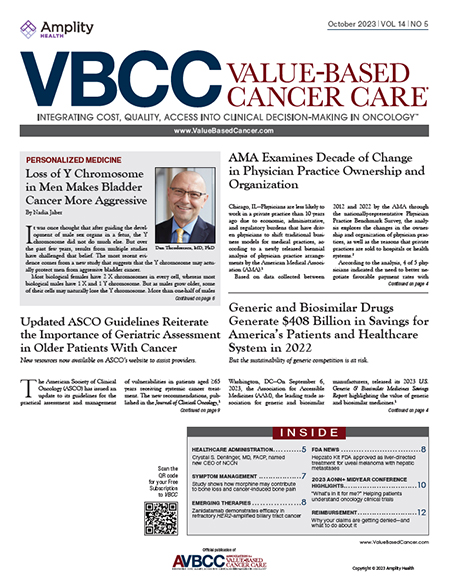Advances in technology often outpace changes in the law. In the November 13 session of the Association for Value-Based Cancer Care (AVBCC) 10th Annual Summit, Daniel Frier, Esq, Co-Founding Partner of Frier Levitt, LLC, moderated a panel of experts who offered legal perspectives on the role of telemedicine in the delivery of cancer care.
John Morrone, Esq, Partner at Frier Levitt, LLC, began the discussion with an overview of telehealth, noting that the COVID-19 pandemic has reinvigorated the use of this technology. Moving forward, we will need to learn how to integrate telehealth into value-based care while ensuring compliance, Mr Morrone noted.
When defining value-based care in telemedicine, Anne Diamond, JD, CNMT, President of Bridgeport Hospital, said that she believes we need to look at quality, patient experience, and cost. In her experience, inpatients have received efficient and compassionate care through telemedicine.
Lorenzo Paladino, MD, Physician and Associate Professor of Emergency Medicine at SUNY Downstate and Kings County Medical Centers, said that while telehealth has been useful during the pandemic, treatment for diseases such as cardiovascular disease and cancer were deferred. There are also components of a physical examination that are lacking with telemedicine.
Simone Colgan Dunlap, JD, Health Law Attorney and Partner at Quarles & Brady LLP, addressed the key legal issues surrounding telemedicine, including licensing, establishing a proper provider−patient relationship, regulations, privacy, and limitations on prescribing.
You can still register for the AVBCC Summit! With more than 40 webcasts and other sessions, the 10-week agenda is packed with timely insights and no-holds-barred debates that you need to understand today’s cancer care ecosystem and trends for the future.


